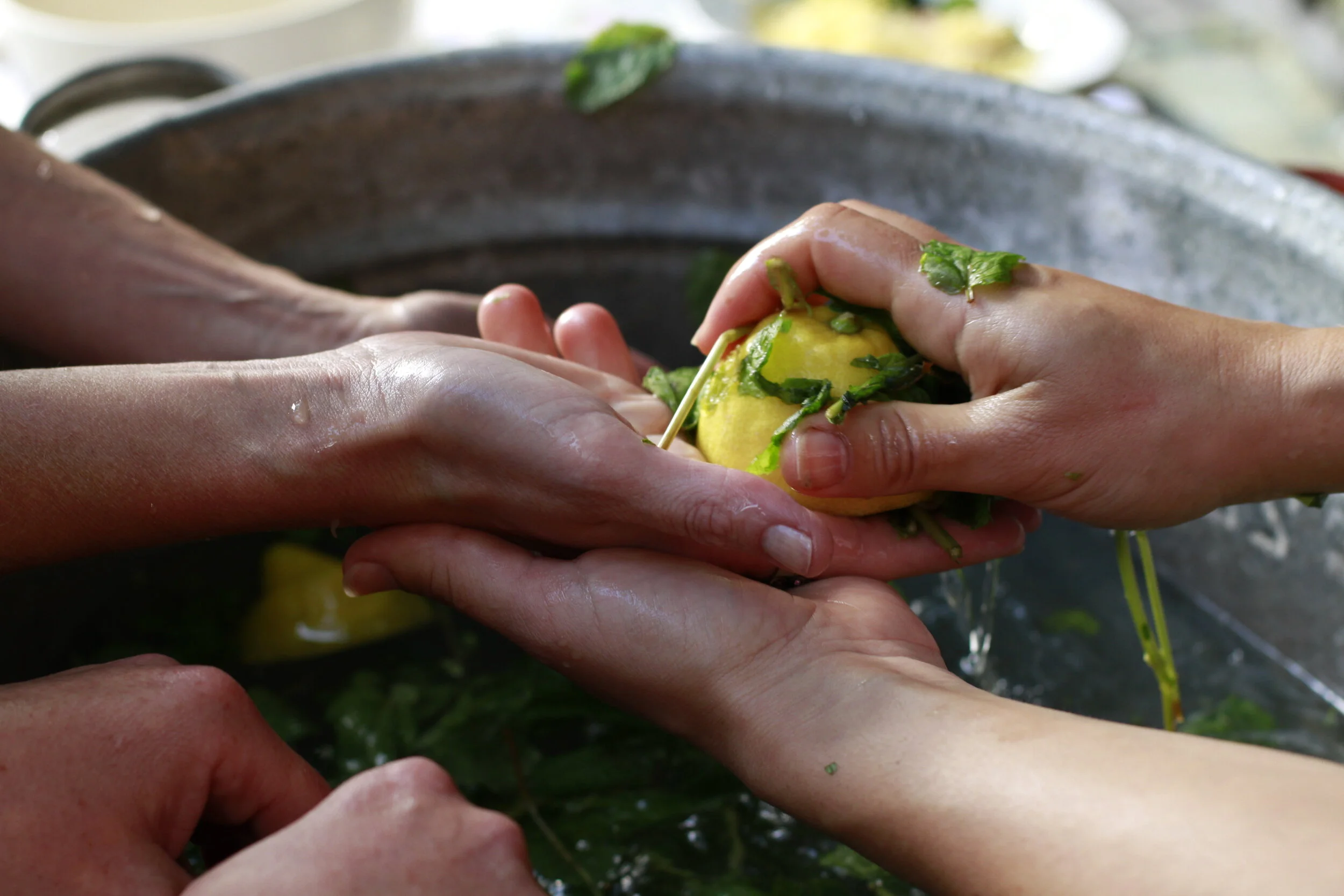HAND TASTE
“While we worked together that wintry November afternoon, kneeling side by side on straw mats, Hyeon Hee mentioned that Koreans traditionally make a distinction between the ‘tongue taste’ and the ‘hand taste’ of a food. Hand taste? I was beginning to have my doubts about the translator. But as Hyeon Hee elaborated on the distinction, while the two of us gently and methodically massaged spice into leaf, the notion began to come into a rough focus.
Tongue taste is the straightforward chemical phenomenon that takes place whenever molecules make contact with taste buds, something that happens with any food as a matter of course. Tongue taste is the kind of easy, accesible flavor that any food scientist or manufacturer can reliably produce in order to make food appealing. “McDonald’s has tongue taste,” Hyeon Hee explained.
Hand taste, however, involves something greater than mere flavor. It is the infinitely more complex experience of a food that bears the unmistakable signature of the individual who made it-the care and thought and idiosyncrasy that that person has put into the work of preparing it. Hand taste cannot be faked, Hyeon Hee insisted, and hand taste is the reason we go to all this trouble, massaging the individual leaves of each cabbage and then folding them and packing them in the urn just so. What hand taste is, I understood all at once, is the taste of love.”
Uit ‘Cooked’ van Michael Pollan (Amerikaanse auteur, journalist, activist en en hoogleraar aan Harvard University en aan UC Berkeley Graduate School of Journalism. )
Mimouna’s hands working the dough for khobz, the moroccan flatbread baked in the makla.
Washing each other’s hands in preparation of a communal dinner.
Food from the Hood Workshops 2018


